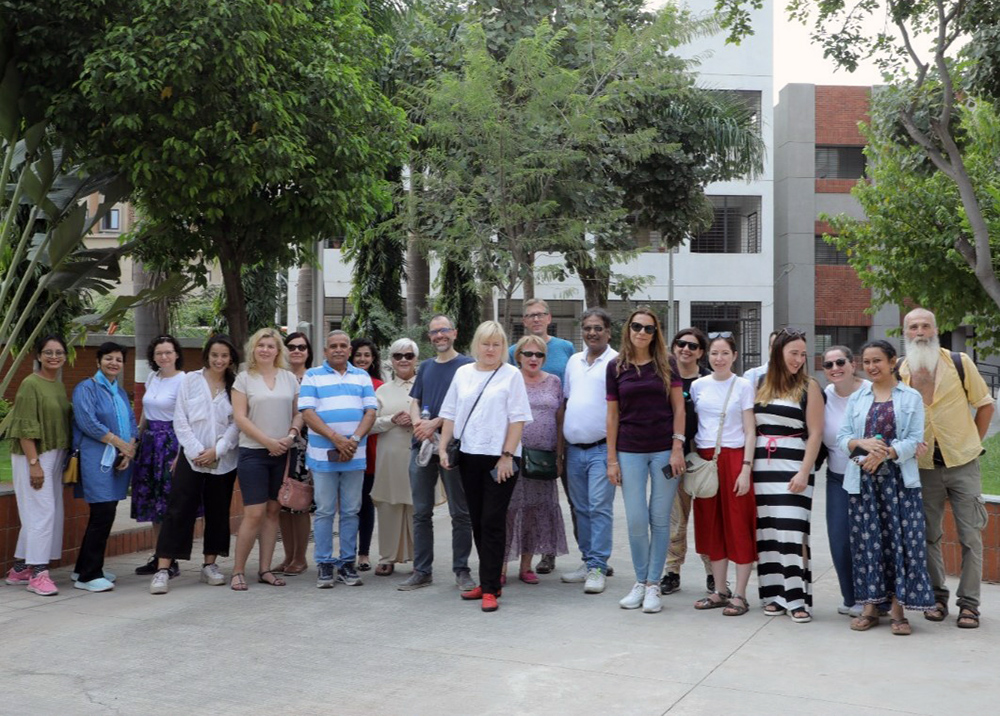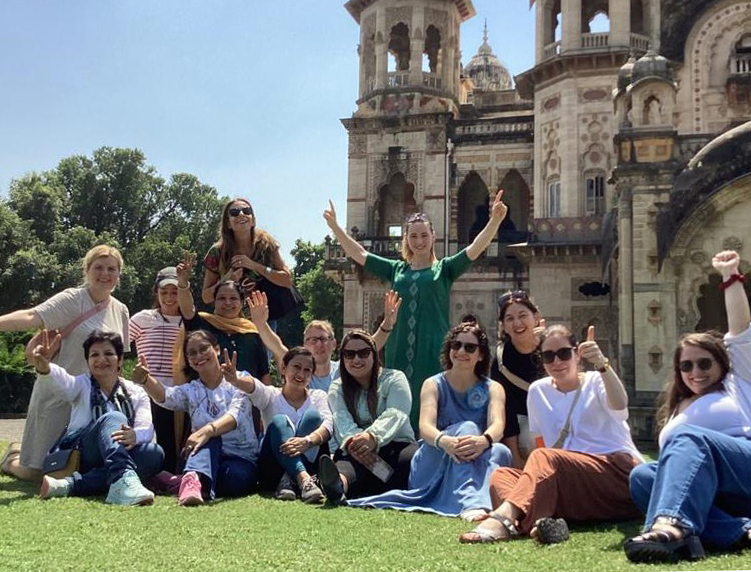Edureform: a phoenix from the flames

Like many countries around the world currently, India is facing big challenges in modernizing its education system. Teaching methodologies and pedagogical knowledge are generally in need of revision as the technological changes brought about by Industry 4.0 begin to influence the world of work. Education must therefore be capable of teaching pupils the skills that are needed by employers to meet these changing requirements. Such challenges cannot be met without highly skilled teachers, nor highly educated teacher educators. JAMK University of Applied Sciences’ School of Professional Teacher Education has joined a consortium, which is delivering a capacity building in higher education (CBHE) programme to help address this issue.
EDUREFORM – Mitigate the impact of fourth industrial revolution on Indian society: Education reform for future and in-service schoolteachers – is an Erasmus+ Key Action 2 Capacity Building for Higher Education project. The consortium consists of eleven partners from India and Europe. They are:
- Chitkara University, India – coordinating the project
- Savitribai Phule Pune University, IN
- Shivaji University, IN
- The Maharaja Sayajirao University of Baroda, IN
- Chitkara International School, IN
- CXS Solutions, IN
- Italian Line University, Italy
- Jamk University of Applied Sciences, Finland
- University of Latvia, LT
- University of Hamburg, Germany
- Liceo Artistico ‘Candiani-Bausch’, IT
The project, which was scheduled to run for three years, began in early 2020 and was immediately affected by the then emerging pandemic. With Indian society suffering great losses during that, the project was unable to begin its work. Subsequently, the consortium has been granted a 12-month extension to the period of eligibility, meaning that the current calendar year, 2022 is, in reality, the project’s second year of collaboration.
As the project’s full title suggests, the main aim of the action is to modernize the curricula of the Indian partner institutions by incorporating pedagogical tools and learning methodologies that have been tried and tested over many years by the European and Indian partners. To be effective, this overarching aim needs to be supported by various sub-goals. Among these was the production of a handbook describing the tools and methods that were selected for inclusion, along with step-by-step detailed instructions for teachers to use these pedagogies in their classrooms. A system of training and mentoring was then instigated for innovation managers of each of the Indian partner Universities so that the tools can continue to be used and adapted after the project’s life cycle has run its course, thus ensuring the sustainability of effort. A great deal of this work was completed towards the end of the pandemic when there appeared to be light at the end of that very long and dark tunnel.
As Indian society reopened after the devastating effects of Covid-19 the huge majority of work on the handbook had already been completed, including the training for the innovation managers. Completing this work remotely allowed the project coordinator, Chitkara University, to plan and deliver the first Empowerment Camp, which was attended by the Indian partners alone.

In early October this year we finally had the opportunity to gather as a whole consortium in Baroda, India. Meeting face-to-face once again is so much better, so much more productive in many ways, than simply communicating with a group of talking heads online. That’s not to say that online communication was not effective under the circumstances – it certainly was, and it proved to be a valuable tool at that time when we could not travel. Now we can travel though, we are looking forward to even greater collaboration within the consortium between now and the end of the project. Although the start of this project was difficult – and I cannot imagine it was the only one – we are now back on track to meet all our goals. This phoenix has indeed risen from the flames – in fact it is now soaring.
In the main photo on top of this blog article the Edureform family is at The Maharaja Sayajirao University of Baroda in October 2022.
Text:
Graham Burns, project manager
Jamk University of Applied Sciences
Photos: Edureform project consortium